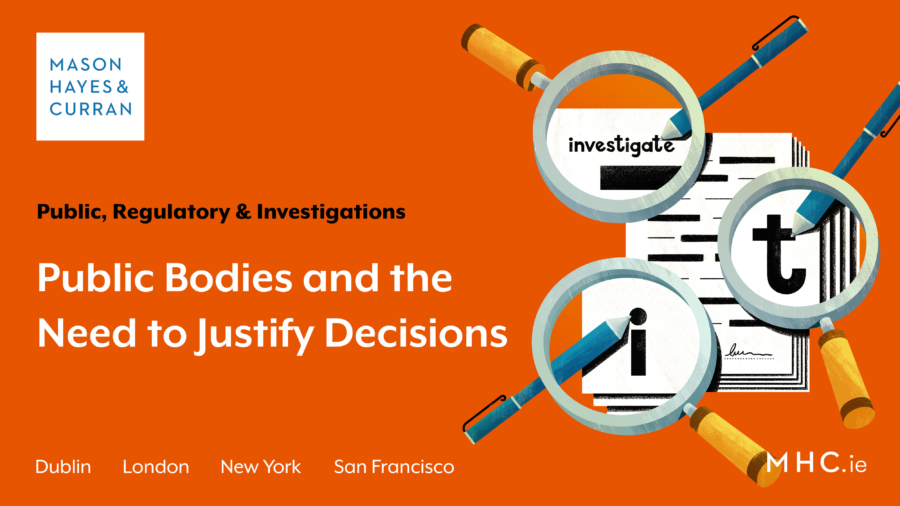
The recent Court of Appeal decision in McEvoy & Anor v Preliminary Proceedings Committee concerned the successful appeal of a High Court decision to refuse Mr and Ms McEvoy leave to judicially review a decision of the Medical Council’s Preliminary Proceedings Committee (PPC). The Court held that the PPC’s decision was flawed, as it failed to demonstrate that consideration had been given to the submissions made by Mr and Ms McEvoy, or why their submissions had been rejected. However, the Court rejected further grounds of appeal based on bias, bad faith and public policy.
Background
This case originated in a complaint made by Mr and Ms McEvoy to the PPC concerning care provided to their wife/mother by Dr A of Hospital A and Dr B of Hospital B. Mr and Ms McEvoy alleged that the care received was “experimental and unauthorised”, and for which informed consent was allegedly not sought. In its decision, the PPC found there was no prima facie evidence to support such allegations, and the matter warranted no further action. Following this, Mr and Ms McEvoy sought to review the PPC’s decision in the High Court.
High Court Decision
Mr and Ms McEvoy alleged that the PPC’s decision was flawed as it was:
- Affected by bias
- Made in bad faith
- Contrary to public policy
- Failed to consider all relevant evidence, and
- Was unreasonable and irrational.
Mr and Ms McEvoy were unsuccessful on all grounds in the High Court.
Court of Appeal Decision
When the matter came before the Court of Appeal, Mr and Ms McEvoy remained unsuccessful on the grounds of bias, bad faith and public policy. The Court indicated that the argument advanced by Mr and Ms McEvoy that the decision not to refer the matter to the Fitness to Practise Committee was contrary to public policy, could not be supported. The Court said that it could not be the case that the failure of the PPC to refer a matter forward for further investigation alone could be contrary to public policy. The Court was clear that a body such as the PPC must be free to exercise its statutory function, and that “the mere fact that the [PPC] exercises those functions one way or another, by accepting or rejecting a complaint, can hardly give rise to a complaint that their decision is contrary to public policy.”
The Court indicated that the circumstances in which it would interfere with the decision of a public body based on irrationality were “limited and rare”. However, Mr Justice Binchy was clear in the Court’s view that the PPC’s decision was “in the most literal sense, unreasonable, and irrational because there is nothing in the opinion of the PPC to indicate or from which it may be inferred what consideration was given to the response of [Mr and Ms McEvoy] … or the reasons for the rejection of those submissions.”
The decision in this matter reiterates the administrative duty on decision makers within public bodies to give reasons for their decisions.
Conclusion
The decision in this matter highlights the significance of correct procedures being followed by regulatory bodies in the investigation of complaints, and the communication of their decision. Decision makers should be mindful of this case both when making and communicating their decisions. It is vital that parties to regulatory proceedings are given a fair and reasonable opportunity to be heard, and that any submissions provided on foot of such an opportunity, are considered in the regulatory body’s decisions.
It is also of utmost importance that the reasons for the public body’s decision can be easily understood by those to whom it is communicated. Decisions do not need to be lengthy or complex, but they must allow those to whom they are addressed to understand the reasoning behind them.
However, public bodies can remain assured that the courts will not unnecessarily interfere with their decisions, unless they see good reason to do so, or those decisions have not been made in the appropriate way.
For more information and expert advice, please get in touch with a member of our Public, Regulatory & Investigations team.
The content of this article is provided for information purposes only and does not constitute legal or other advice.






